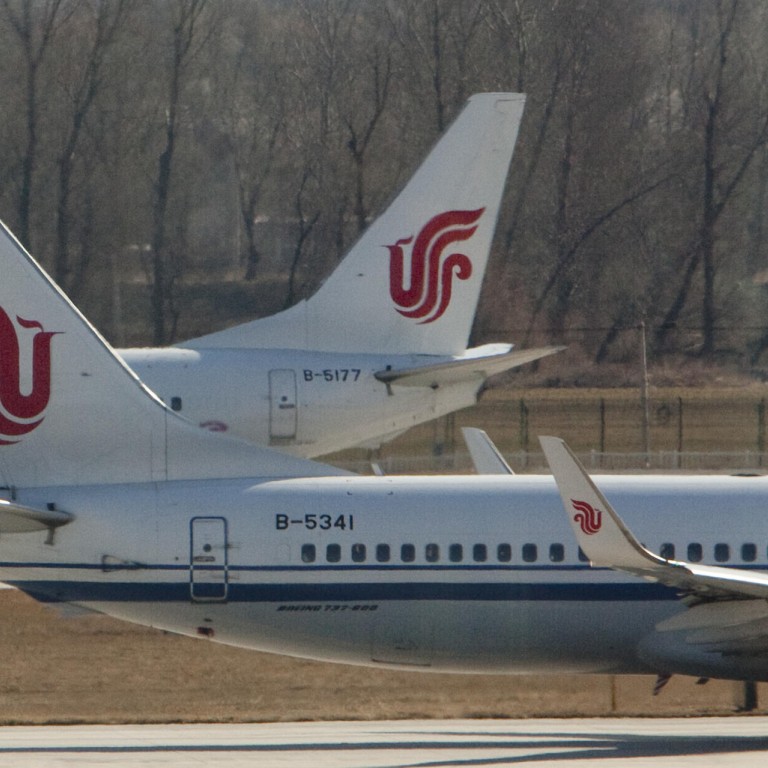
Currency gains help keep Air China in the black
Yuan appreciation has continued to help mainland carriers stay afloat, with Air China yesterday reporting a 9.7 per cent increase in first-half net profit to 1.14 billion yuan (HK$1.43 billion).
Yuan appreciation has continued to help mainland carriers stay afloat, with Air China yesterday reporting a 9.7 per cent increase in first-half net profit to 1.14 billion yuan (HK$1.43 billion).

Yuan appreciation in the period reduced its US dollar-dominated debt and resulted in a paper gain.
The anti-corruption campaign launched by Beijing has taken a toll on premium traffic on the mainland and Air China saw a 13 per cent year-on-year drop in its passenger yield, which measures the income per passenger per kilometre flown. This compares with a 10 per cent fall in passenger yield at China Southern Airlines, which focuses more on the mass market.
Net profit margin dropped to 2.5 per cent in the first half, from 5.44 per cent in 2012. The diplomatic tension between China and Japan over disputed islands in the East China Sea also dampened travel to and from Japan, which used to offer lucrative routes for Air China.
New tax reforms on the mainland also trimmed its revenue by 6 per cent to 45.86 billion yuan.
Air China exerted stringent cost controls in the period, with its operating cost increasing only 0.37 per cent to 39.5 billion yuan.
The carrier has adopted a prudent fleet expansion plan for 2013, expecting to take delivery of 25 aircraft in the year, equivalent to 6 per cent of its fleet at the end of last year. It took delivery of 20 aircraft in the first half and fleet size increased to 470 by June. Air China will gradually speed up its fleet expansion and receive 34 and 36 planes in 2014 and 2015, respectively.
In May, Air China and its subsidiary Shenzhen Airlines ordered 100 Airbus 320s with a catalogue price of US$8.8 billion.
The aircraft will be delivered between next year and 2020.
Air China Cargo, which is owned 51 per cent by Air China, posted a net loss of 271 million yuan.
The loss was narrowed by 38 per cent year on year as it disposed of a Boeing 747 freighter in the period.
Shenzhen Air saw its sales increase 4.5 per cent to 10.1 billion yuan but net profit contributable to Air China plummeted 62 per cent to 228 million yuan.
Air China raised 5 billion yuan through issuing a second batch of yuan bonds this month.
